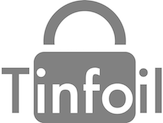Edit: So, after reading through this thread, I've changed my mind. The advantage of paper notes being transparently secure to the source seems really valuable. Maybe the best approach is to take notes on paper and then write them up on a locked-down laptop as soon as possible?
Original post:
Personally, I would prefer a dedicated "air gapped" laptop, since one can easily encrypt the hard drive, whereas with hand written notes you either have to risk getting stopped with them or you can try to make up awkward codes for yourself, which will probably prove unworkable and not very secure.
A used Thinkpad laptop would be ideal for this application - something small like an x60, x200, or x220, which can be had for ~$80, ~$200, and ~$300, respectively on Ebay or a used computer store. They have good battery life (you can purchase Chinese knockoff 6 cell batteries for them that last for 10+ hours). They're easy to disassemble with a jewel screw driver set, which makes it fairly easy to remove the microphone, the Bluetooth antenna, and the WiFi antenna. Newer netbooks that cost as much or more tend to be glued together, so you're more likely tor ruin a good laptop with those.
As for the operating system, any Linux distro with full disk encryption enabled should be fine (use diceware to make a passphrase). You've eliminated most of your potential threats by keeping it off of the internet. However, you still need to be careful about inserting USBs into the machine (they must be clean - only insert newly purchased USBs to extract your notes). If you don't know which Linux distro to choose, just use Tails.
If you want to be more confident in your note taking laptop's security, especially when leaving it somewhere other than on your person, or if you don't like keeping track of whether your USBs are clean, you could install Qubes OS on the machine. However, since Qubes OS is a resource intensive operating system, only the x220 can support it, and you will still need to modify it by replacing the stock RAM (2.7GB) with twin 8GB chips (for a total of 16GB - as much RAM as a brand new fully kitted out MacBook Pro). The good news is that the new RAM will only set you back $32.
If you want a fun project and you like learning about hardware, you could also increase your note taking laptop's security by replacing the BIOS with Libreboot (an open source bios alternative). However, this is probably overkill, since the machine is off the net. If you really like learning new things, try this, otherwise, you're fine. Libreboot only works on the x60 and the x200. If you want Libreboot, but you don't want the hassle, you can buy machines with it pre-installed from "The Ministry of Freedom," which is an outfit that re-furbishes old Thinkpads with Libreboot. Overall, Libreboot is not necessary for this application. The other stuff above may be a good idea.



